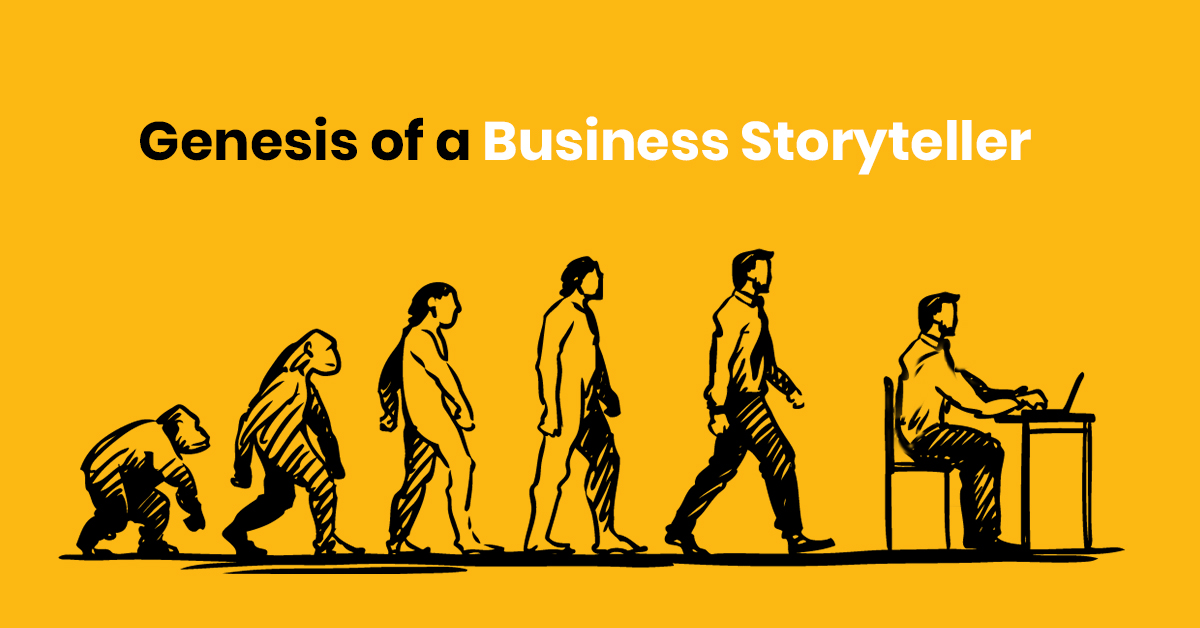As a child, when I listened to mythological tales and stories about exemplary personalities, it was fascinating and seemed magical. But, storytelling as a career? Today, over two decades later, earning a living with the art of storytelling is a dream come true. Of course, now, the stories are not what my grandparents used to tell me. However, the underlying tenet of garnering attention and connecting with others remains the same.
Business storytelling, at its core, helps orient facts, figures, and features into relatable chunks. In the form of stories, narratives leave a lasting impact on the audiences’ hearts and minds. As a business storyteller, it is my job to empathize with my target audience, lucidly communicate the message and generate an emotional connection. The degree of success is often measured with metrics pertaining to easier brand recall and increased brand loyalty.
Here are a few key lessons I have come to understand over the span of the last few months.
Flavour/Essence of Being a Storyteller
‘Welcome to the Storyteller’s Club. Time to be a literary chameleon.” This was the first bit of advice my Chief Storyteller offered. The voice and tone are always dynamic. Every industry, every client, every time. So, the calibration of messages has to be on point.
Being a business storyteller, the first job is to understand the audience. The ‘who’ and ‘why’ for the crux of every storytelling endeavour. The ideation of the core message follows closely behind. Next, I have to identify the right tools to deliver the narrative. Connecting with the relevant audience in the proper format makes or breaks every story. And, with time, I realized the key aspect of being a storyteller. That is, the ability to generate curiosity and persuade people in a particular direction.
Fear, Failure & More: Challenges of Being a Storyteller
An initial stumbling block in my case was the need for industry knowledge. Every other word uttered during the morning meet-up was incomprehensible jargon. ‘What does this or that mean?’ seemed my most often repeated refrain. The initial hesitance to ask questions only made the matter worse.
The advice of “Know your audience, align the message, and simplify the narrative” seemed deceptively easy. Yet it took a lot of patience and practice to understand and make it my own.
The mere thought of approaching deadlines and half-baked writing gives me the chills even as I write this. Seeking deadline extensions in the hope of finding a better idea is a mirage. For me, a heady mix of procrastination and misplaced perfectionism is to be blamed. How do I tackle that, you ask? Take my words and remember this quote from Will Shetterly, “It is better to write a bad first draft than to write no first draft at all.”
An Act of Balance: Learnings as a Storyteller
Read, read, and then read some more. To be an effective storyteller, one needs to be a voracious reader with an appetite for diverse topics. I read through and researched every genre of writings in my company’s repository to understand the work previously done. A bonus tip – Seek out newsletters and editorials recommendations from your colleagues. It helped broaden my horizon and understand multiple sensibilities. A winning proposition, isn’t it?
Remember the literary chameleon bit earlier? It has an even more critical aspect as its constant companion. Consistency is an essential truism in storytelling. Stories need to remain consistent in voice, tone, and approach. For this to happen, I had to ensure consistency in my practice of story creation. And it definitely pays to be clear on the idea in focus, hero, audience, and intended impact.
Criticism is for the craft, not the heart. And this advice is worth remembering for continued growth and mental well-being. Instead of brushing it off, I learned to turn every mistake into a lesson. Extra fluff and flourish are avoided for a reason. Active voice is encouraged for a reason. So, take a pause and introspect. Listen and learn from the experience of fellow storytellers.
Emotions & Expressions: The Road Ahead
Stories are magical. It helps connect with the audience and solidify relationships. But they are not a silver bullet for every circumstance. Storytelling needs to take into account multiple factors ranging from human emotions to business decisions.
As for being a storyteller, I am often reminded of the lines of Robert Frost – “But I have promises to keep, and miles to go before I sleep.” The promise of being better at the craft. The promise of being a better listener. The promise of being a better storyteller. The promise of better stories. These continue to push me to wake up and go about creating stories.
Keep writing and keep weaving better and greater stories. Until next time!


